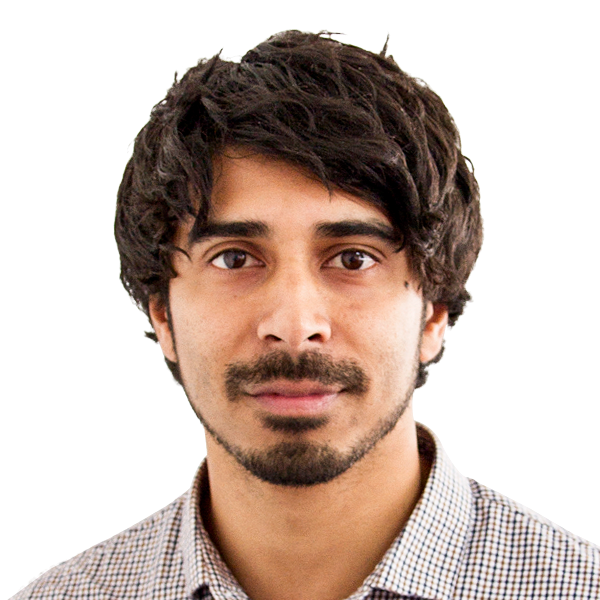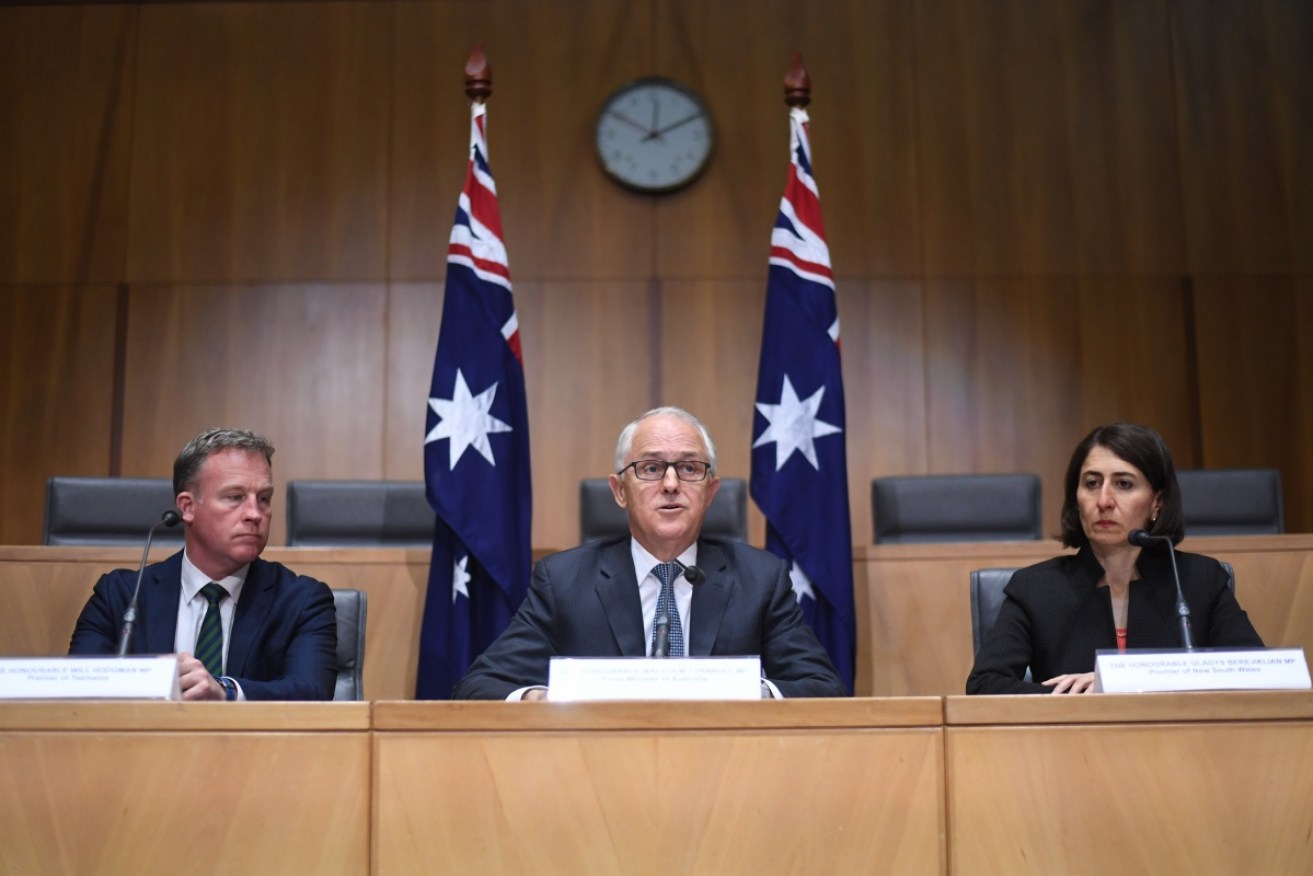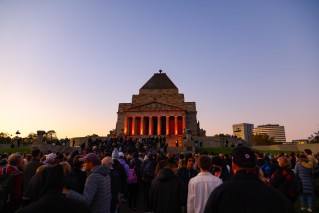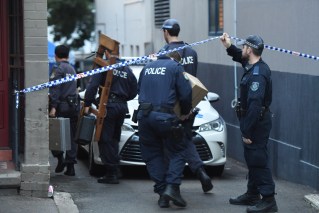Civil liberties ‘a luxury’ as premiers back Turnbull’s new anti-terror laws


Malcolm Turnbull won the support of state and territory leaders at a special national security summit. Photo: AAP
Australians have been told to accept a new normal – civil liberties and freedoms will be curtailed in the face of the “very real” threat of terrorism.
The declaration came at a special national security-focused summit on Thursday as state and territory leaders accepted the Turnbull government’s request for an expansion of anti-terror laws and facial recognition technology.
New South Wales Premier Gladys Berejiklian said the leaders were in “violent agreement” over the threat and committed to handing over the drivers’ licenses held by their governments to help create a national identity database.

Victorian Premier Daniel Andrews backed the PM’s push for new anti-terror laws. Photo: AAP
They also agreed to nationalise laws already in place in New South Wales that allow police to detain a terror suspect – who could be as young as 14 – for two weeks without charge.
“Notional considerations of civil liberties do not trump the very real threat of terror in our country today,” said Victorian Premier Daniel Andrews, describing concerns about civil liberties as a “luxury”.
“We are going to have to curtail the rights and freedoms of a small number of people in order to keep the vast majority of Australians safe.”
The images from drivers’ licenses and passports will allow authorities to identify Australians in seconds using CCTV but Prime Minister Malcolm Turnbull denied that would lead to a form of “mass surveillance”.
“To be clear about this, this is not accessing information, photo ID information that is not currently available,” Mr Turnbull said.
“We are talking about bringing together essentially federal government photo IDs, passports, visas and so forth, together with drivers’ licences.”
‘A sad day’ for civil liberties
Mr Turnbull has previously said the data could be used to identify people at airports but also other public venues such as sporting venues and shopping centres.
The state-held data is already available to federal authorities, Justice Minister Michael Keenan said, but can take between 7-10 days to process.
Civil liberties groups said it was a “sad day” for Australia, while privacy advocates warned that it was “inevitable” the data compiled nationally for the first time would eventually be used for purposes besides counter-terrorism.
“This is a sad day when the leaders of our country say that civil liberties are not as important as they were previously, and that freedoms are to be subordinated to national security,” Stephen Blanks, President of the New South Wales Council for Civil Liberties, told The New Daily.
Australian Privacy Foundation chair David Vaile told The New Daily that there would eventually be “scope creep”.

Gladys Berejiklian says safety must be prioritised over civil liberties. Photo: AAP
“We saw it with metadata retention. We’ve got form in letting the scope creep out to more trivial things,” he said.
Mr Vaile said the data would “flood law enforcement with low-value information due to inevitable large number of false positive matches”.
The state and territory governments also agree to proposals to make it an offence to possess instructional terrorist material or to make terrorism hoaxes.
Ms Berejiklian said that while governments must be “conscious of individual rights and civil liberties”, she believed “public safety and security must come first”.
Queensland Premier Annastacia Palaszczuk said her government hoped the new database would be in place in time for next year’s Gold Coast Commonwealth Games.
It would mean authorities would be able to analyse and almost immediately identify hundreds of thousands of spectators at sporting venues across the city.
Only ACT Chief Minister Andrew Barr expressed some misgivings about the proposals, which were accepted in-principle by all state and territory leaders.
He said it was “perhaps in sorrow than anger” that Australians can “reflect upon the change in our community” that necessitates these sort of action”.








